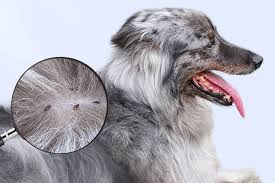
Pet Nat wine? Love it or never heard of it? No worries, we’ve got you covered! Picture this: effervescent bubbles dancing on your palate, a burst of fruity flavors, and a touch of natural allure. That’s the magic of pet nat wine – the vibrant rebel of the wine world. It’s raw, unfiltered, and oh-so-delicious. So if you’re up for a wild wine ride, buckle up – because pet nat wine is here to shake things up in your glass!
The World of Pet Nat Wine: A Natural Elegance in Every Sip
When it comes to unique and intriguing wines, Pet Nat stands out as a testament to the art and science of winemaking. This effervescent delight has captured the hearts of wine enthusiasts around the world with its natural and refreshing qualities. Let’s dive into the fascinating world of Pet Nat wine, uncovering its origins, production process, flavor profiles, and serving suggestions.
Origin and History of Pet Nat Wine
While Pet Nat may seem like a trendy newcomer to the wine scene, its roots actually trace back centuries. The term “Pet Nat” is short for Pétillant Naturel, a French phrase meaning naturally sparkling. This winemaking method dates back to the ancestral method used by winemakers long before modern techniques like the Champagne method were developed.
Historically, Pet Nat was a way to produce sparkling wine in a simpler, more rustic manner. This method involves bottling the wine before primary fermentation is complete, allowing carbon dioxide to naturally carbonate the wine. This ancient technique gives Pet Nat its signature effervescence and slightly cloudy appearance, setting it apart from traditional sparkling wines.
Production Process of Pet Nat Wine
The production of Pet Nat wine is a delicate and hands-on process that requires precision and patience. Here is a step-by-step breakdown of how this unique sparkling wine is crafted:
1. Harvesting and Pressing:
- Winemakers carefully select and hand-harvest grapes at the peak of ripeness.
- The grapes are gently pressed to extract the juice, which will be used to make the wine.
2. Fermentation:
- The freshly pressed grape juice is transferred to a vessel for fermentation.
- In the case of Pet Nat, the wine is bottled before primary fermentation is complete, allowing for natural carbonation.
3. Bottling:
- The wine is bottled with a crown cap to trap the carbon dioxide produced during fermentation, creating the bubbles in the wine.
- As fermentation continues in the bottle, the carbonation builds up, resulting in a lightly effervescent wine.
4. Riddling and Disgorging:
- After fermentation is complete, the wine undergoes riddling, a process that helps move sediment to the neck of the bottle.
- Once the sediment is collected, the neck of the bottle is frozen, and the sediment is quickly disgorged, leaving behind clear wine.
Flavor Profiles and Varietals of Pet Nat Wine
One of the most enticing aspects of Pet Nat wine is its diverse array of flavors and profiles, making each bottle a unique and exciting experience for the palate. Here are some common flavor profiles and popular grape varietals used in Pet Nat production:
Flavor Profiles:
- Crisp and refreshing with lively acidity
- Natural effervescence enhancing the sensory experience
- Notes of citrus, stone fruits, and floral undertones
- Balanced sweetness and minerality
Popular Grape Varietals:
- Chenin Blanc
- Gamay
- Pinot Noir
- Grenache
- Sauvignon Blanc
Each grape varietal brings its own unique characteristics to Pet Nat wine, influencing the overall flavor profile and aroma of the final product.
Serving and Pairing Suggestions for Pet Nat Wine
When it comes to enjoying Pet Nat wine to the fullest, proper serving and pairing can elevate the experience. Here are some tips on serving and pairing Pet Nat wine:
Serving Temperature:
- Chill Pet Nat wine to around 45-50°F (7-10°C) before serving.
- Allow the wine to warm slightly in the glass to fully appreciate its aromas and flavors.
Glassware:
- Opt for a tulip-shaped wine glass to concentrate the aromas of the wine.
- The narrow opening of the glass helps retain the wine’s effervescence.
Food Pairings:
- Light and fresh seafood dishes such as oysters or ceviche
- Crisp salads with citrus vinaigrette
- Soft cheeses like brie or chevre
- Charcuterie boards with cured meats and pickled vegetables
Pairing Pet Nat wine with the right foods can enhance the flavors of both the wine and the dish, creating a harmonious culinary experience.
Exploring the Diversity of Pet Nat Wine
As the popularity of natural wines continues to rise, Pet Nat stands out as a versatile and intriguing option for wine enthusiasts seeking something out of the ordinary. Whether you’re drawn to its effervescence, unique flavors, or artisanal production methods, Pet Nat wine offers a delightful journey for your taste buds. Dive into the world of Pet Nat and savor the natural elegance in every sip!
Frequently Asked Questions
What is unique about Pet Nat wine?
Pet Nat wine, short for Pétillant Naturel, is a type of sparkling wine made using the méthode ancestrale, a method where the wine undergoes a single fermentation in the bottle, capturing natural effervescence. This approach results in a wine that is often lively, slightly cloudy, and can have a range of flavors from fruity to floral.
How should Pet Nat wine be stored?
Pet Nat wine is best stored upright in a cool, dark place away from direct sunlight and temperature fluctuations. It is important to keep the wine at a consistent temperature to maintain its quality and prevent premature aging.
What foods pair well with Pet Nat wine?
Pet Nat wine’s versatility allows it to pair well with a variety of foods. It complements a range of dishes such as fresh seafood, light salads, charcuterie, soft cheeses, and even spicy cuisines. The effervescence and acidity of Pet Nat wine can help cleanse the palate between bites.
Is Pet Nat wine different from traditional sparkling wine?
Yes, Pet Nat wine differs from traditional sparkling wine in its production method. Unlike traditional sparkling wine, which undergoes a secondary fermentation to create bubbles, Pet Nat wine is bottled before completing its initial fermentation. This natural approach gives Pet Nat wine a distinctively fresh and lively character.
Does Pet Nat wine contain sulfites?
Some Pet Nat wines may contain minimal amounts of sulfites, as they occur naturally during the fermentation process. However, compared to many other wines, Pet Nat wines generally have lower sulfite levels since they are often unfiltered and bottled with minimal intervention. It’s recommended to check the label or inquire with the producer if you have sulfite sensitivities.
Final Thoughts
In conclusion, Pet Nat wine offers a lively and effervescent experience that captivates the senses. Its natural production method preserves the raw and vibrant flavors of the grapes, resulting in a unique and refreshing taste. Perfect for those seeking a more authentic and unfiltered wine experience, Pet Nat wine is a must-try for wine enthusiasts looking to explore unconventional and exciting wine options. Its popularity continues to grow as wine lovers embrace its distinct charm and character.




